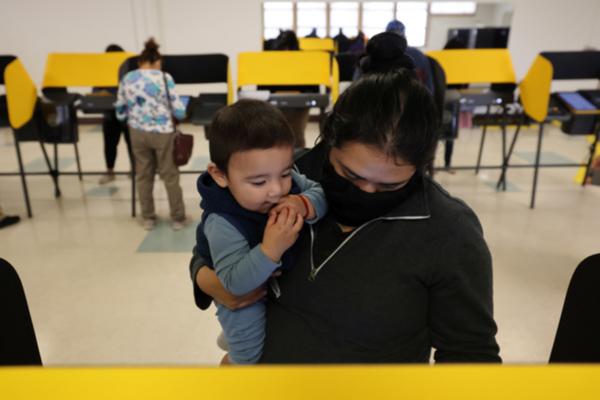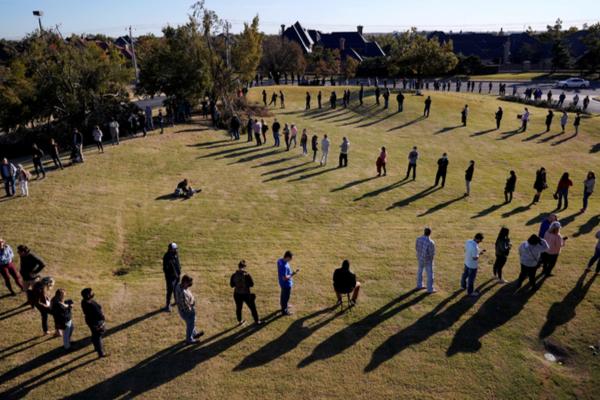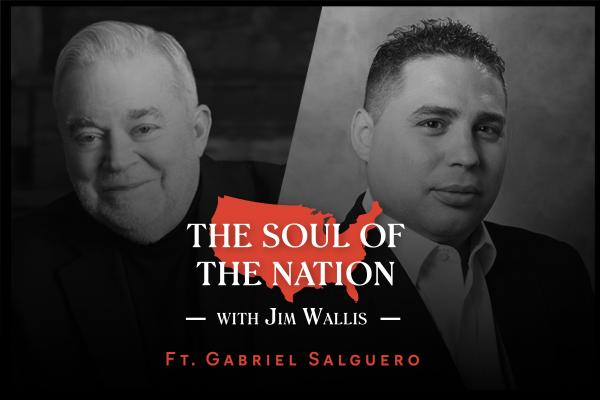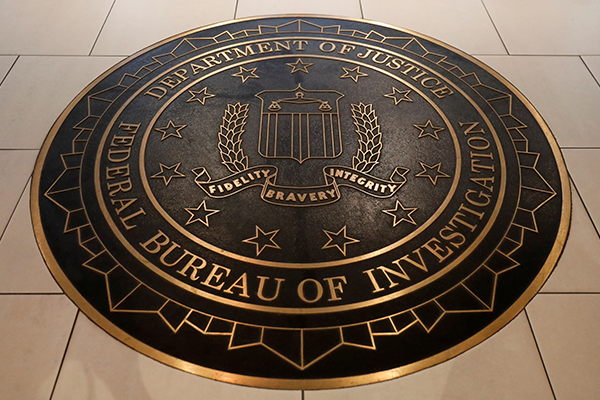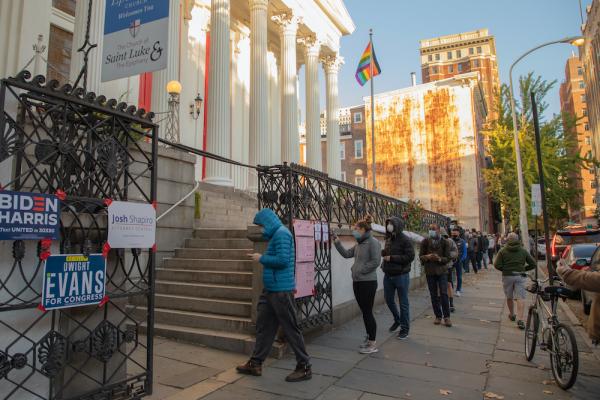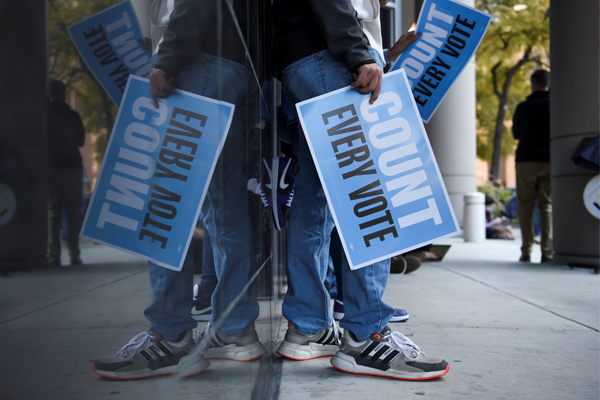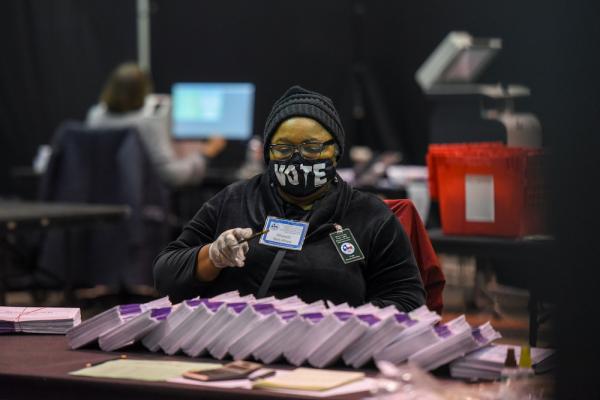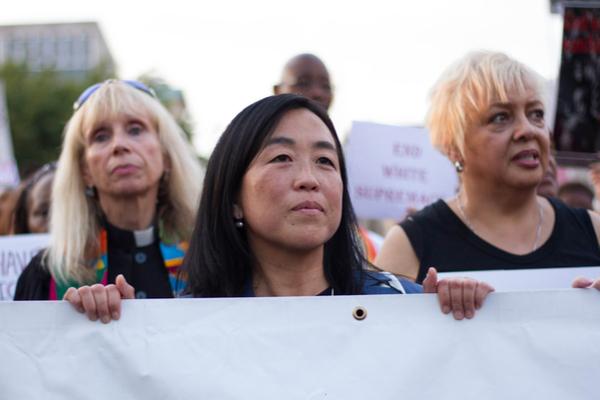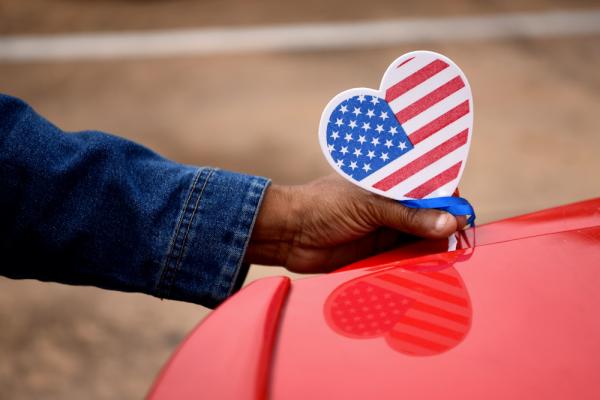It was a fitful night of what I can only generously describe as sleep. Maybe you can relate. I drifted off to sleep early, only to be awakened at midnight by my wife, who had received the latest election alert on her phone. My 7- and 9-year-old sons were also one edge almost all Election Day, worried about my day trip to Philadelphia and showing an uncanny degree of interest in the constant news coverage.
Voters in Pennsylvania, Washington, D.C., Illinois, and Minnesota all reported that fellow voters opted to invalidate their absentee ballots at the polls on Election Day and cast their votes live instead. Their reasons included concerns about their absentee ballots being received on time, mail-in votes being counted legally, and finding a dropbox for the ballots.
Hundreds of faith leaders and organizations have released statements in the last week demanding that every vote be counted and expressing their peaceful commitment to the democratic process.
Rev. Jim Wallis speaks with president of the National Latino Evangelical Coalition and co-lead pastor of The Gathering Place, Rev. Gabriel Salguero, about the Latinx vote. Salguero discusses where the evangelical Hispanic vote is going in this election and the mindset behind the Latino/Latina voter.
U.S. state and local officials have been raising the alarm over at least two separate automated call campaigns as millions of Americans cast their votes on Tuesday to decide between President Donald Trump and challenger Joe Biden.
Nearly 100 million Americans have already cast their ballots. It’s a staggering and hopeful number that makes this Election Day unlike any other. Today, the nation decides whether it will follow the path to a more inclusive, multiracial democracy — or spiral further into the violent abyss of white supremacy. Today we decide what kind of nation we want to become.
The Electoral College has racist origins. Southern states were granted votes for three-fifths of their slave populations, even though those enslaved people were themselves unable to vote. This effectively gave white southerners an outsized influence on the electoral process until the end of the Jim Crow era. Today, the system favors voters in a small group of battleground states at the expense of most Americans and over-represents white voters while ignoring many voters of color. A growing chorus of legal and policy experts, along with the majority of Americans, believe it should change. However, the Electoral College’s racist legacy has also impacted efforts to change it.
Because of the COVID-19 pandemic, mail-in voting has increased drastically in the 2020 election. Of the almost 100 million votes cast before Election Day, nearly 64 million of those were mail-in ballots. Though states have different rules and methods for mail-in ballots, voters across the country encountered a new question this election: “How do I know my vote was counted?”
According to a recent survey, nearly 70 percent of people in the U.S. are worried voters will be harassed or intimidated on Election Day; the same survey found that more than three-quarters of Americans worry there will not be a peaceful transition of power after the election. But community leaders and clergy are determined to avoid a violent outcome.
While groups like CatholicVote and others have narrowed in on pro-life, pro-Trump messaging, many other Catholic groups are urging Catholics to think more holistically when they enter the voting booth. “Pro-life,” they argue, extends to honoring the dignity all life from the womb to the tomb, which behooves voters to consider issues like health care, housing, education, racism, climate justice, migration, and criminal justice reform while voting.

